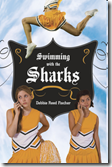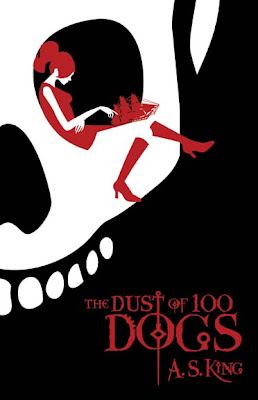
In a previous life I worked at a company that published books about home improvement and design, and I was very interested in residential architectural stuff. I stumbled on to a book called
A Pattern Language by an architect and Berkeley professor named Christopher Alexander and several collaborators. It's a fascinating book about the ways humans divide up the spaces they live in, from a planetary scale to a room scale. The "patterns" of the book are archetypal design challenges that the authors have identified and solutions to those challenges that the author propose. I think the book is fascinating to anyone who occupies space (and that would be everyone), but for the purposes of this blog, I think the two patterns that directly address teenage life are very interesting.
Pattern 84 is called Teenage Society. Here's the problem:
"Teenage is the time of passage between childhood and adulthood. In traditional societies, this passage is accompanied by rites which suit the psychological demands of the transition. But in modern society the 'high school' fails entirely to provide this passage."
And here's a taste of the solution:
"We believe that teenagers in a town, boys and girls from age 12 to 18, should be encouraged to form a miniature society, in which they are as differentiated, and as mutually responsible, as the adults in full scale society . . . . Therefore: Replace the 'high school' with an institution which is actually a model of adult society. . . ."
Here's the other teenage pattern, number 154 Teenager's Cottage:
"If a teenager's place in the home does not reflect his need for a measure of independence, he will be locked in conflict with his family."
There solution is what they call the "teenage cottage." The whole description of how they conceive the space is really interesting to me. They see space as a way to help a teenager redefine their connection to the family--still connected, but also independent. Here's the solution:
"To mark a child's coming of age, transform his place in the home into a kind of cottage that expresses in a physical way the beginnings of independence. Keep the cottage attached to the home, but make it a distinctly visible bulge, far away from the master bedroom, with a private entrance, perhaps its own roof."
The authors are confident of the archetypal nature of all the problems they identify, but they rate their solutions on a zero-to-three scale to measure how elemental they believe their solutions are--whether they believe there are solutions to the problem that don't incorporate elements of their solution (scoring a zero) or they believe no solution is possible without incorporating theirs (a three). Both of these score a zero. Interesting.
Their first pattern-solution pair seems like
Lord of the Flies to me, but I find the second really interesting. I'm sure you could find dozens of examples of this in practice in YA novels and teen TV. (Anybody else thinking of that Beach Boys song, "In My Room"?)
 "[Everything You Want] about each character searching out what they truly want in spite of—rather than because of—the new money in their lives. For Emma, a college freshman who's never dated (her closest experience hither-to resulted in her getting punched in the face), it's about groping her way into the future and, she hopes, finding love along the way—universal themes in spite of extraordinary circumstances. Also, did I mention that much of the dialogue is downright hilarious?"
"[Everything You Want] about each character searching out what they truly want in spite of—rather than because of—the new money in their lives. For Emma, a college freshman who's never dated (her closest experience hither-to resulted in her getting punched in the face), it's about groping her way into the future and, she hopes, finding love along the way—universal themes in spite of extraordinary circumstances. Also, did I mention that much of the dialogue is downright hilarious?"



 I'm composing this using a free piece of Microsoft software called Windows Live Writer. It's a standalone editor that can post to most major blog platforms (I use Blogger) and I'm pretty sure it's awesome (not as awesome Henry, built still pretty awesome). Here's just a few bells and whistles: It supports drag and drop pictures and allows you to resize them intelligently. You can customize the border width. And, when you grab an image that's a link, like from Amazon or your dear publisher's web site, it grabs
I'm composing this using a free piece of Microsoft software called Windows Live Writer. It's a standalone editor that can post to most major blog platforms (I use Blogger) and I'm pretty sure it's awesome (not as awesome Henry, built still pretty awesome). Here's just a few bells and whistles: It supports drag and drop pictures and allows you to resize them intelligently. You can customize the border width. And, when you grab an image that's a link, like from Amazon or your dear publisher's web site, it grabs
 So, which was more important to the book's success? It's legitimization by Greene or its vilification by Gordon. Or both? I tend to think the controversy--is it art, is it porn?--was the important factor. Nabokov, who outwardly scorned concerning himself with an audience any larger than his one ideal reader, seems to have been reasonably and pragmatically content to tolerate the mischaracterization and occasional abuse (see movie tie-in cover) of his book in the popular imagination, as long as a core of readers (eventually a very, very large core) understood its genius, and as long as he was comfortably compensated for that popular success (which he was, Lolita the book and movie that followed allowed him to quit teaching and live comfortably in Montreux, Switzerland for the rest of his life).
So, which was more important to the book's success? It's legitimization by Greene or its vilification by Gordon. Or both? I tend to think the controversy--is it art, is it porn?--was the important factor. Nabokov, who outwardly scorned concerning himself with an audience any larger than his one ideal reader, seems to have been reasonably and pragmatically content to tolerate the mischaracterization and occasional abuse (see movie tie-in cover) of his book in the popular imagination, as long as a core of readers (eventually a very, very large core) understood its genius, and as long as he was comfortably compensated for that popular success (which he was, Lolita the book and movie that followed allowed him to quit teaching and live comfortably in Montreux, Switzerland for the rest of his life).







 Josie Bloss marked the release of her new novel in a way that's completely
Josie Bloss marked the release of her new novel in a way that's completely 



